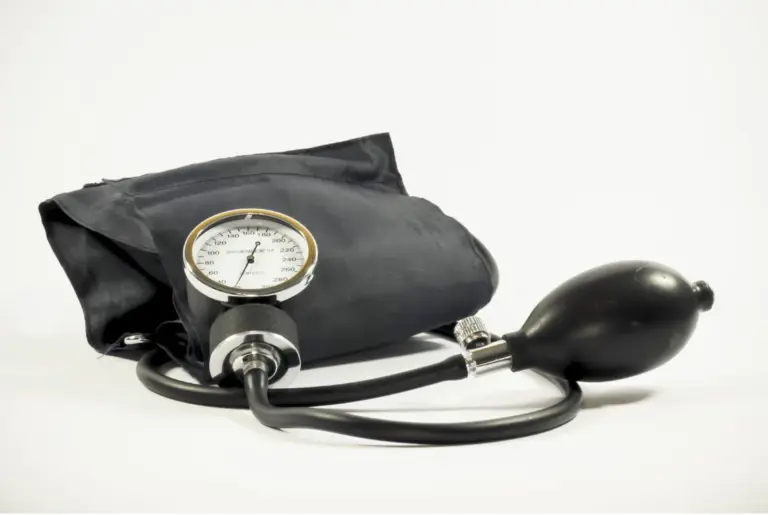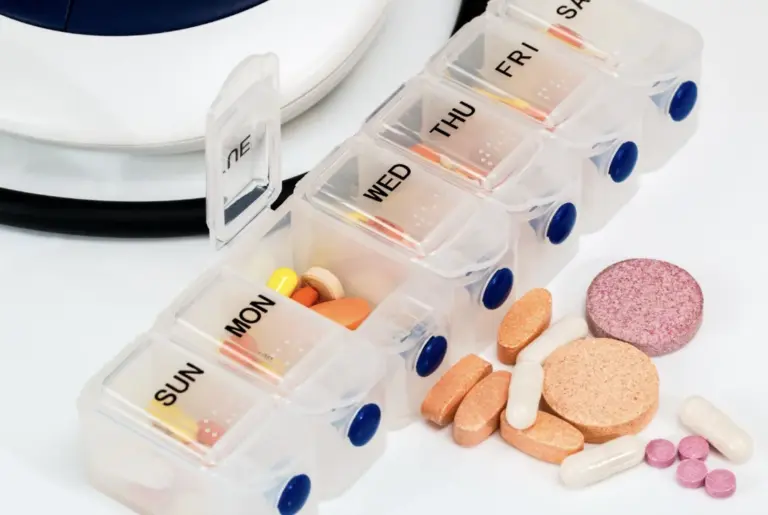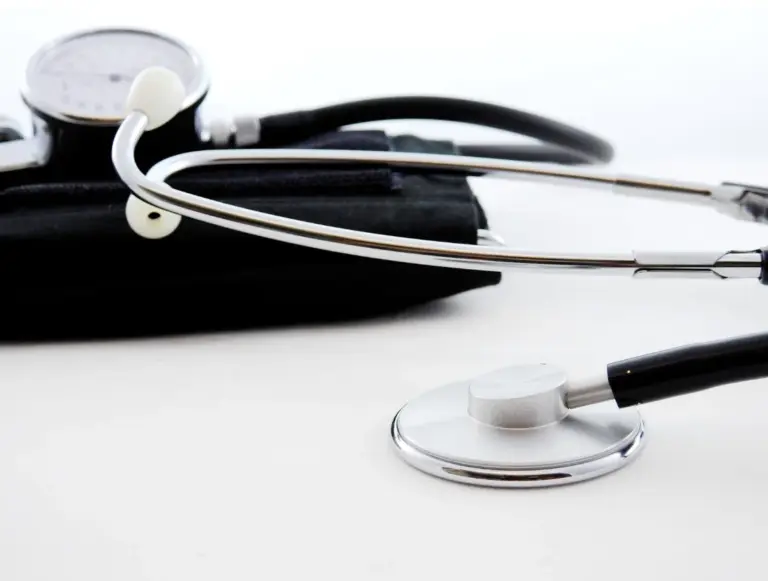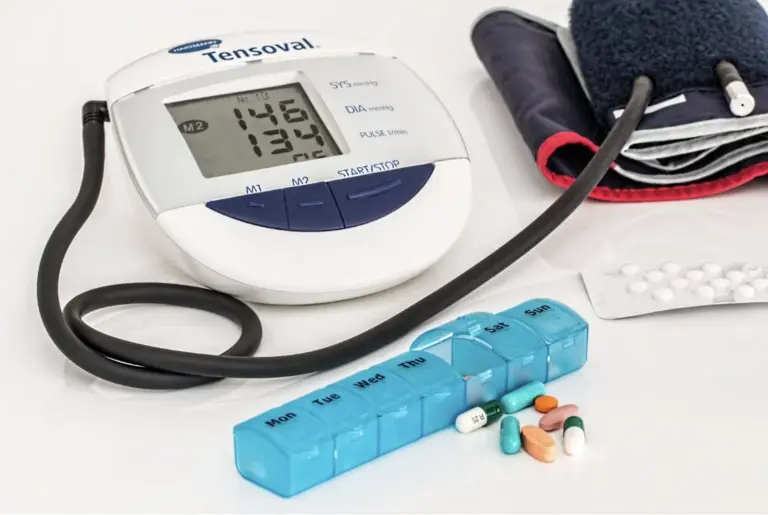High blood pressure or hypertension is a prevalent medical condition that significantly impacts organs like the heart, kidney, brain and causes other diseases. Hypertension is called the ‘silent killer’ because it does not give any signs or symptoms in its early stages. According to the WHO, nearly 46% of adults with hypertension are unaware that they have the condition, and less than half the adults with hypertension are diagnosed and treated. Hypertension is widely prevalent, and nearly 1.28 million adults between 30 to 79 years have the condition. Of these 1.28 million, almost two-thirds of the people live in low- and middle-income countries.
Let us understand more about hypertension symptoms, what causes high blood pressure, and know some tips to prevent this condition from developing.
What is High Blood Pressure?
Blood pressure is the force applied by circulating blood on the walls of the arteries (blood vessels that carry oxygenated blood to all parts of the body).
When the pressure applied by the blood on the walls of the arteries is chronically high, it can damage the walls of the blood vessels and cause problems like heart diseases.
What Causes High Blood Pressure?
Hypertension is a lifestyle disease and is caused by a combination of lifestyle factors and pre-existing conditions.
These causes vary slightly depending on the type of hypertension you have contracted. There are two types of hypertension – primary hypertension and secondary hypertension.
Primary Hypertension
Primary hypertension is also called ‘essential hypertension’ and develops gradually over many years. It’s called ‘primary’ because it is the main condition affecting you and not a side-effect of something else. This type of hypertension can be caused by:
- Genes: Some people are prone to high blood pressure due to their genes. In this case, the hypertension is hereditary.
- Increased age.
- Racial Ethnicity: Studies have found that black non-Hispanic individuals have a greater risk of developing hypertension than people from other backgrounds.
- Obesity.
- High alcohol consumption.
- Smoking or chewing tobacco.
- Sedentary lifestyle.
- Increased sodium intake.
Secondary Hypertension
You have secondary hypertension when your high blood pressure levels are secondary to an underlying condition or a side effect of taking medications. This type of hypertension usually appears suddenly, and the resultant blood pressure levels are higher than those seen in primary hypertension.
The following conditions are known to cause secondary hypertension:
- Obstructive sleep apnea.
- Kidney disease.
- Tumor of the adrenal glands.
- Thyroid problems.
- Congenital disabilities of the blood vessels.
- Pregnancy.
- Medications like decongestants, OTC pain relievers, birth control pills, hormonal pills.
- Type 2 Diabetes.
- Lupus erythematosus.
- Scleroderma.
- Illegal drugs like cocaine and amphetamines.
How to Understand High Blood Pressure Readings?
Blood pressure is measured in mm Hg. A typical blood pressure reading has two numbers:
- The upper number measures the pressure in your arteries when your heartbeats. This is called systolic pressure.
- The bottom number measures the pressure in your arteries between two heartbeats and is called the diastolic pressure.
According to the American Heart Association (AHA):
- The normal range for blood pressure is 120/80 mm Hg.
- When the systolic blood pressure is between 120-129 mm Hg and the diastolic blood pressure lies below 80mm Hg, you have elevated blood pressure (hypertension).
- When your systolic blood pressure lies between 130 and 139 mm Hg and the diastolic between 80-90 mm Hg, you are said to be in stage 1 Hypertension.
- When your systolic pressure is 140 mm Hg or above and your diastolic shoots above 90 mm Hg, you are in stage 2 Hypertension.
- When your blood pressure crosses 180/120 mm Hg, you are said to be in hypertensive crisis.
What are the Symptoms of Hypertension?
Hypertension symptoms usually do not appear until at the advanced stages of the disease. You may have had hypertension for years and still not know about it. But, uncontrolled and untreated hypertension can increase your risk for cardiovascular problems like heart attacks and stroke. The best way to prevent severe damage due to high blood pressure is by regular monitoring during routine checkups. Some symptoms that may indicate your high blood pressure are:
- Headaches
- Shortness of breath
- Nosebleeds
Symptoms of a hypertensive crisis include:
- Headache
- Nausea
- Vomiting
- Dizziness
- Blurred or double vision
- Heart palpitations
- Breathlessness
If you or anyone you know experiences one or more of the symptoms mentioned above of hypertensive crisis, you must see your doctor immediately.
How is High Blood Pressure Diagnosed?
Since hypertension symptoms usually appear late, most people are diagnosed with this condition during routine health checkups or doctor visits. Blood pressure is measured using a device called the sphygmomanometer.
If you are over 45 years of age, it may be a good idea to monitor your blood pressure levels at home using a home BP machine. It is also recommended that you visit your family physician for routine checkups, more so if you have any other underlying condition that may put you at risk for developing high blood pressure. If you have diabetes, you must regularly monitor your blood pressure as more people with type 2 diabetes are developing hypertension.
What are the Effects of High Blood Pressure on the Body?
The effects of high blood pressure on the body can be seen in different systems.
Circulatory System
One of the first systems that high blood pressure affects is the circulatory system. Chronic uncontrolled blood pressure can damage the blood vessels throughout the body, thereby affecting the blood supply to the various parts of the body. Damage to the arteries also stimulates the deposition of bad cholesterol in them. More and more cholesterol building up in the arterial walls makes the lumen narrow, further reducing blood flow to different tissues. This eventually puts immense pressure on the heart and makes it susceptible to heart failure.
Signs of heart failure are:
- Shortness of breath
- Breathing difficulty
- Swelling or edema in the legs, ankles, and abdomen
- Tiredness and fatigue
In some cases, high blood pressure can result in the bulging of a damaged artery (called an aneurysm). A ruptured aneurysm can be potentially fatal.
Nervous System
Hypertension affects the nervous system and has been linked to dementia and cognitive decline. This is due to the reduced flow of blood to the brain.
When larger arteries in the brain get blocked, it can lead to a stroke. The prognosis of a stroke depends largely upon the severity of the stroke and how quickly one got the treatment.
High blood pressure can also damage the eyes by causing blurry vision and sometimes even blindness.
Respiratory System
Apart from the brain and the heart, hypertension can also affect the arteries in the lungs, especially the artery that supplies the lungs with oxygen. When the artery carrying oxygenated blood to the lungs gets blocked, it can cause pulmonary embolism, a serious condition that needs medical attention.
Sleep apnea is a sleep disorder that is a high-risk factor for developing high blood pressure.
Reproductive System
The next system that may be affected by high blood pressure is the reproductive organs. The sexual organs get aroused when extra blood flows through them. However, when blood pressure rises, it can cause blockages in the blood vessels associated with the penis or vagina, leading to sexual dysfunction.
Many hypertensive men find it difficult to get and maintain an erection, while women usually experience decreased arousal, vagina dryness, or difficulty having an orgasm.
Urinary System
The urinary system comprises primarily the kidneys that remove waste from the blood and maintain blood volume and pressure. Chronic high blood pressure can damage large blood vessels associated with the kidneys and affect their filtering efficiency. This, over some time, can damage the kidneys. High blood pressure is one of the primary causes of kidney failure.
How is High Blood Pressure Treated?
The treatment of high blood pressure depends upon the severity of blood pressure and the individual’s risk of developing cardiovascular disease. A typical treatment plan for a hypertensive patient includes:
- Medications:Depending upon the cause of your high blood pressure, your doctor will put you on appropriate blood pressure-lowering medications.
- Lifestyle changes:Unhealthy lifestyle is a primary causative factor for high blood pressure. Eating a healthy diet, exercising regularly, getting a good amount of sleep, and managing stress can help bring down your blood pressure numbers.
- Constant and regular monitoring:To keep your blood pressure numbers within normal limits, you must constantly monitor your numbers. Whether using a home BP machine or visiting the doctor for routine checkups, keeping track of your blood pressure levels helps you keep them in the normal range.
What Medications are Used for High Blood Pressure?
Different groups of medications are used in treating high blood pressure based on the cause of the condition in each patient. These include:
- Angiotensin-Converting Enzyme Inhibitors (ACE inhibitors):ACE inhibitors block the actions of some hormones that regulate blood pressure, like Angiotensin II. Angiotensin II brings about constriction of arteries and increases blood volume, both of which increase blood pressure levels.
- Calcium Channel Blockers:The primary goal of calcium channel blockers is to decrease calcium levels in blood vessels. This relaxes the muscles in the blood vessels and widens their lumen, reducing the blood pressure.
- Thiazide Diuretics:This class of drugs helps the body get rid of sodium and water, which helps lower blood volume and pressure.
- Beta-blockers:Popular hypertensive medications that are used in cases of hypertensive crisis. Since they can cause a drop in blood pressure and even reduce the heartbeat, they are now only used when other anti-hypertensive medications are not effective.
- Renin-inhibitors:These medications reduce the production of renin, an enzyme that kidneys produce. Ex: Aliskiren
High Blood Pressure: Tips for Prevention
High blood pressure is preventable. Here are some tips to prevent high blood pressure:
- Diet:Eating a healthy diet, including lots of fiber, and reducing unhealthy fat consumption can help keep your blood pressure levels within normal limits. This also includes limiting your salt intake as increased salt intake can cause hypertension. A DASH diet is highly recommended if you wish to keep your blood pressure levels low.
- Weight:Excess weight and obesity are high-risk factors for hypertension development. To prevent high blood pressure, it is highly recommended to keep your weight in the normal range.
- Exercise:The American Heart Association recommends all adults get at least 30 minutes of exercise every day or 150 minutes of exercise per week to keep the heart and the vascular system healthy.
- Quit Smoking:Smoking is another high-risk factor for hypertension. To prevent high blood pressure, quit smoking.
- Limit alcohol:Excessive drinking can lead to high blood pressure. If you wish to prevent this condition, limit your consumption of alcohol.
Wrapping it Up!
High blood pressure may be a prevalent condition, but it can lead to compromised quality of life and diseases when not treated in time. Though it is difficult to detect hypertension early, regular checkups and routine monitoring at home or your doctor’s office can help spot it earlier. If you are already hypertensive, there is nothing to be anxious about. With the right lifestyle modifications, healthy dietary habits, and regular workouts, you can keep your numbers under check.
DISCLAIMER
This article does not substitute the need for expert medical advice when needed. Talk to your healthcare provider about worrying signs of high blood pressure.
REFERENCES :
- https://www.mayoclinic.org/diseases-conditions/high-blood-pressure/symptoms-causes/syc-20373410
- https://www.medicalnewstoday.com/articles/159283#how-to-lower-bp
Disclaimer
The information contained in this article is to educate, spread awareness in relation to hypertension and other diseases to the public at large. The contents of this article are created and developed by BPinControl.in through its authors, which has necessary, authorisations, license, approvals, permits etc to allow usage of this articles on The Website. The views and opinions expressed in this article are views, opinions of the respective authors and are independently endorsed by doctors. Although great care has been taken in compiling and checking the information in this article, The Website shall not be responsible, or in any way liable for any errors, omissions or inaccuracies in this article whether arising from negligence or otherwise, or for any consequences arising therefrom. The content of this article is not a substitute for any medical advice. The Website shall not be held responsible or liable for any consequence arising out of reliance on the information provided in the article.




